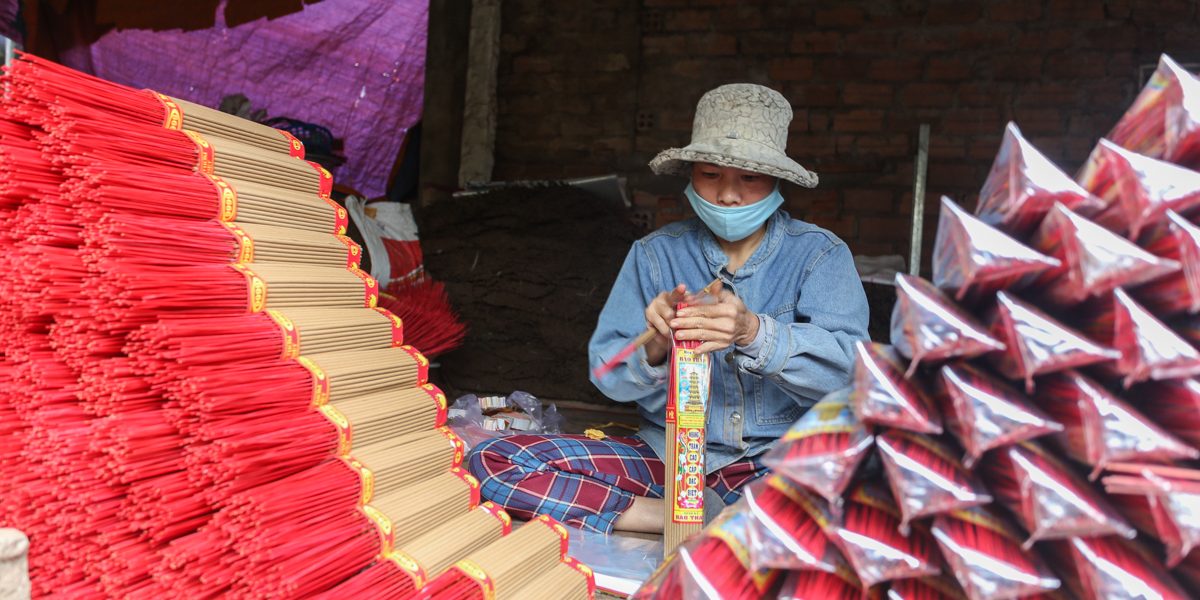
Quan Huong villagers in Quang Nam Province have grown exceedingly busy as demand for incense sticks soars prior to Lunar New Year.
 |
|
Du Van Nhan, whose family has been making incense sticks in the village for three generations, dries raw materials in front of his home. |
![[Caption]aa](https://i-english.vnecdn.net/2021/01/18/02-8599-1610944437.jpg) |
|
Materials used to make incense include saw powder, cinnamon, herbal medicine, and agarwood, dried and finely ground. Plastic powder and water are added to the final mix. |
![[Caption]aa](https://i-english.vnecdn.net/2021/01/18/03-4872-1610944437.jpg) |
|
Sticks to make incense are bought from northern provinces for VND26,000 ($1.12) per kilogram. |
![[Caption]aa](https://i-english.vnecdn.net/2021/01/18/04-8842-1610944437.jpg) |
|
Manually-operated machines are used to produce incense. |
![[Caption]aa](https://i-english.vnecdn.net/2021/01/18/05-7358-1610944437.jpg) |
|
Incense is usually dried in the sun for four consecutive hours. |
![[Caption]aa](https://i-english.vnecdn.net/2021/01/18/06-3155-1610944437.jpg) |
|
Incense is dried in local yards. |
![[Caption]aa](https://i-english.vnecdn.net/2021/01/18/07-4116-1610944438.jpg) |
|
Some villagers use iron trusses for drying, each holding thousands of easily collected sticks. |
![[Caption]aa](https://i-english.vnecdn.net/2021/01/18/08-8097-1610944438.jpg) |
|
Dried incense is packed into large bags. |
![[Caption]aa](https://i-english.vnecdn.net/2021/01/18/09-2775-1610944438.jpg) |
|
Prices per bundle range from a cheap VND8,000 to VND30,000 ($1.29), while agarwood costs from VND300,000 per kilogram. |
![[Caption]aa](https://i-english.vnecdn.net/2021/01/18/10-5854-1610944438.jpg) |
|
Every year, Quan Huong Village produces nearly 1,000 tons of incense for domestic consumption and export to Laos. |
